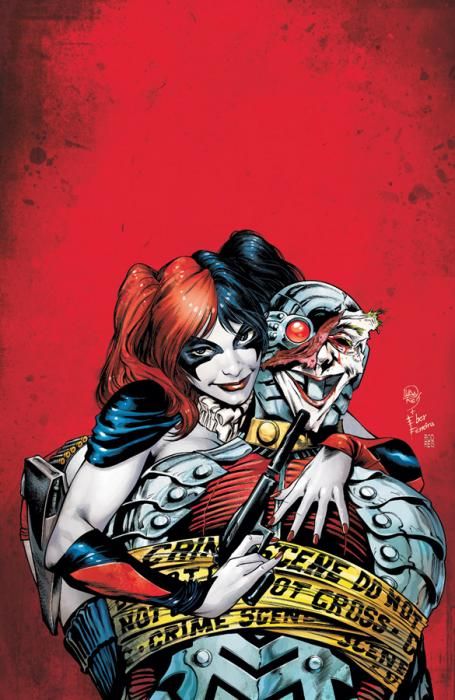Don't let it be said Adam Glass lets readers get complacent with "Suicide Squad." This is a book that continues to live up to its name with team members dropping left and right, and this issue is no exception to the rule.
Perhaps more importantly, "Suicide Squad" #7 gives us the new origin for Harley Quinn. It's changed from both the "Batman: The Animated Series" story "Mad Love" as well as the one-shot that brought Harley Quinn into the DC Universe during "No Man's Land" and it's got parts that work and don't work.
On the minus side, Harley's new origin feels much simpler than what Paul Dini had created back in the day. Harley's motives don't feel terribly strong and there isn't that wonderful descent into madness Harleen Quinzell had before. This feels a bit flimsier and almost random. On the plus side, the physical transformation into the new Harley Quinn is a little creepy and horrific; that moment of pleading when reality begins to assert itself, even as the point of no return has been reached. It's the unwillingness to go through with the Joker's plan that will ultimately be the memorable part of this new origin, if nothing else.
As for the rest of the story, Glass puts several members of the team into bad situations that remain unresolved and there's one death that felt both gratuitous and necessary simultaneously, if that makes sense. It's a little out of the blue but at the same time, the particular manner of death needed to happen sooner or later in "Suicide Squad" to lock in a threat hanging over the team since day one. As for the big cliffhanger conclusion, time will tell (or at least next issue) on how permanent the change is, but even if it feels like it's not going to stick it's certainly an attention-grabber and brings to the foreground just what characters are willing to do to meet their goals.
Clayton Henry and Ig Guara step on board to pinch-hit on the art side before the big artist shuffle takes place and they turn in nice, solid pages. Both artists are known for their clean style, which is certainly a change for "Suicide Squad," but I like the end result. It meshes well with what Fernando Dagnino will bring to the title shortly and despite having two pencillers, the pair meshes well with one another.
"Suicide Squad" is certainly a bloodthirsty and violent book, but provided you don't mind that, it's also entertaining. Glass and company have brought a fun and dangerous romp through the DC Universe each month and this issue is no exception to that rule.

